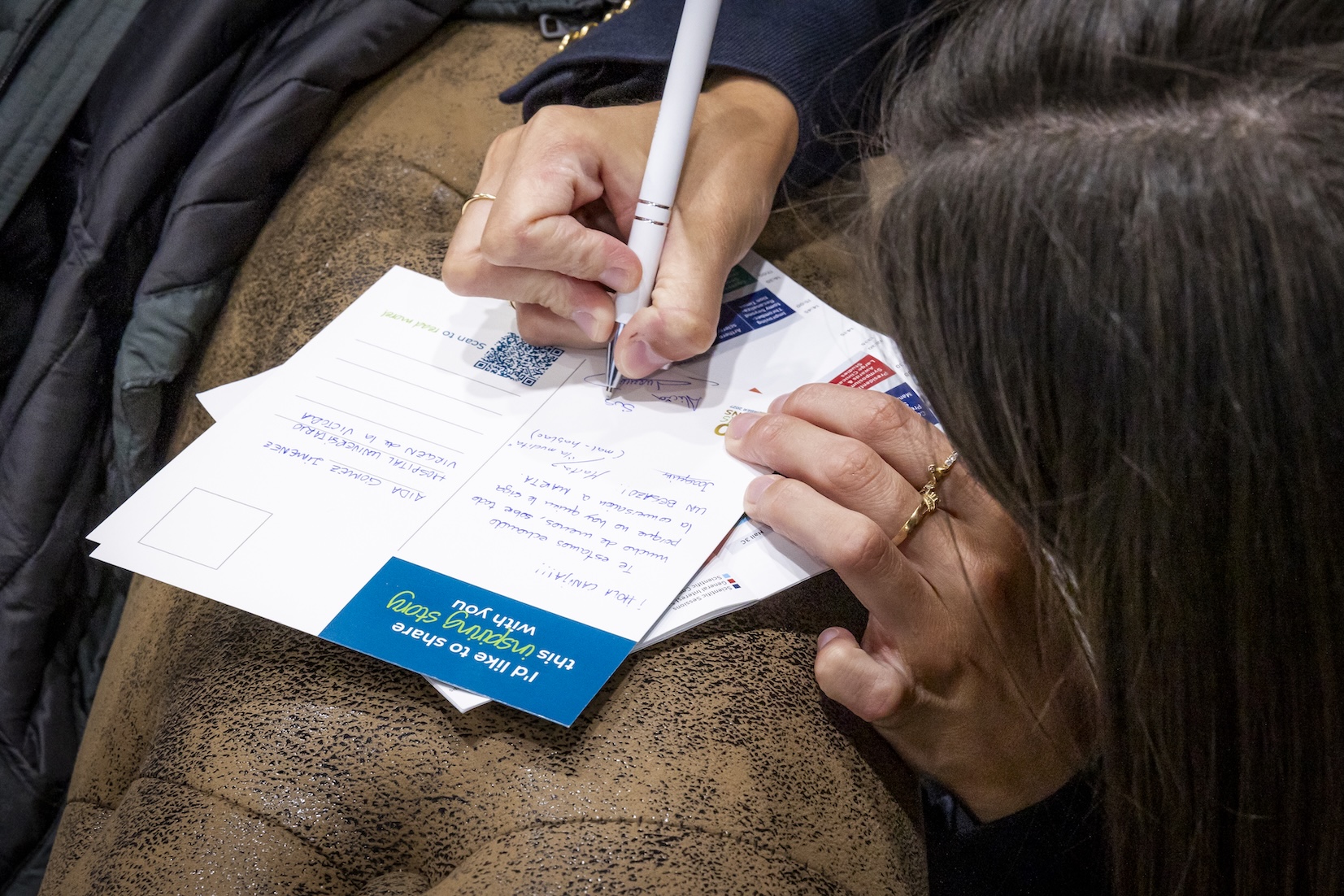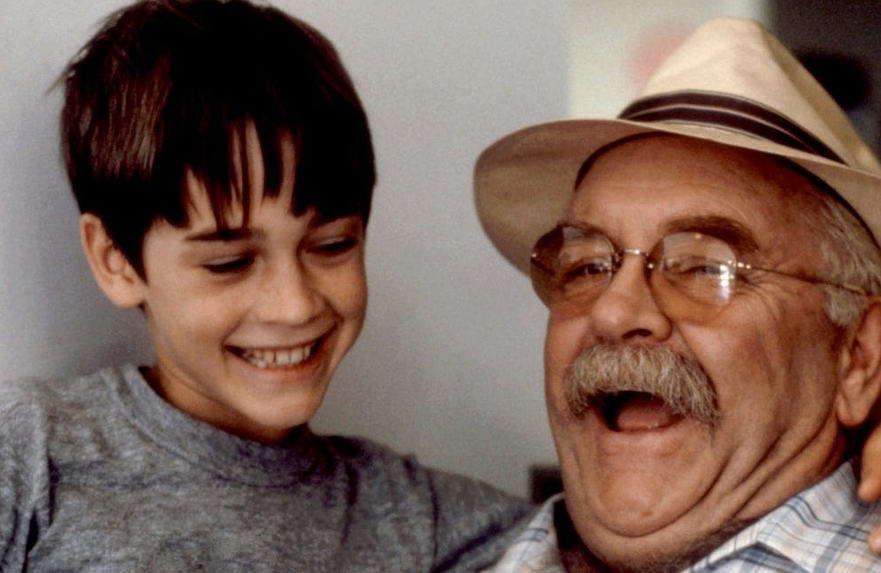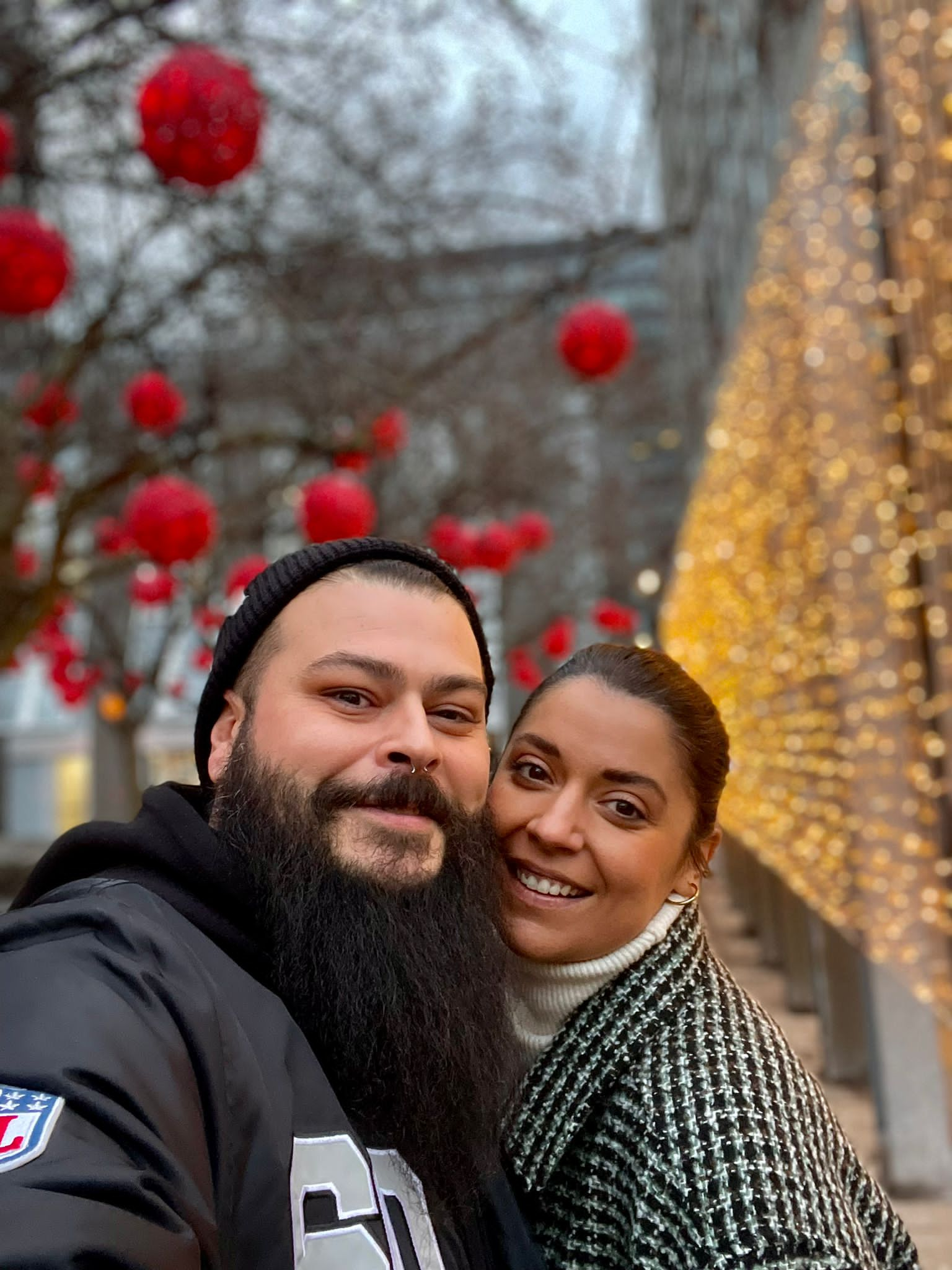
La historia de MAURO comienza como uno de los años más difíciles de la historia italiana moderna y se acerca el cierre. El país está en confinamiento, una medida cuyo objetivo es impedir un nuevo pico en las infecciones por Covid temidas durante el periodo de vacaciones. En uno de los países más afectados de Europa, la Covid ya se ha quitado casi 70 000 vidas, y las muertes en la segunda ola superan el peaje de la mueca alcanzado en la primera. Se espera que el programa de vacunación lanzado recientemente marque el comienzo de la pesadilla, pero durante diciembre de 2020, el virus se reclama entre 600 y 800 vidas cada 24 horas.
A pesar de los rumores y de la prohibición de los viajes interregionales, el ingeniero de gestión Mauro Carrucciu tiene que ir a trabajar. Su novia, la profesora de idioma Julia Mete, está en Canadá visitando su abuelo, por lo que Mauro se despierta solo en su apartamento pasando por alto la famosa catedral de Florence con su magnífica cúpula del Renaissance.
Levanta la cabeza de la almohada alrededor de las 6:30 a. m. Se siente mareado y cuando intenta levantarse descubre que no puede confiar en su brazo izquierdo ni en su pierna izquierda. No tiene ni idea de lo que está sucediendo, pero el instinto le dice que desbloquee el pestillo de su puerta si es la última cosa que hace, así que se lanza a través del tramo de suelo de cuatro metros, con su teléfono entre los dientes.
Antes de llamar al número de emergencias, Mauro intenta llamar a su madre. Sabe dónde vive y podría dirigir una ambulancia a su dirección. Pero es temprano por la mañana y no responde. Mauro siente la boca llena de saliva mientras llama al 118. Aún puede hablar, pero está empezando a ser insensible.
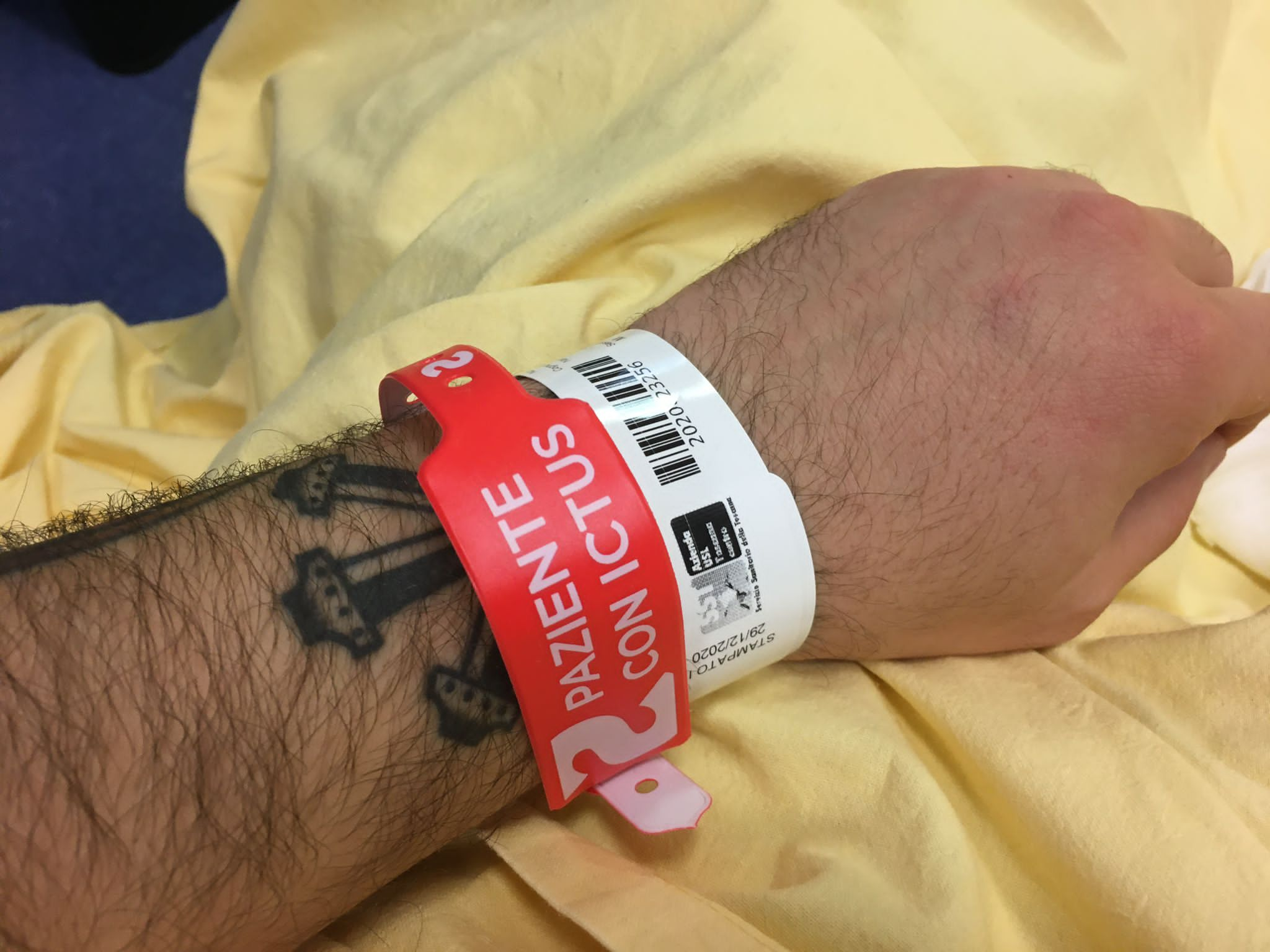
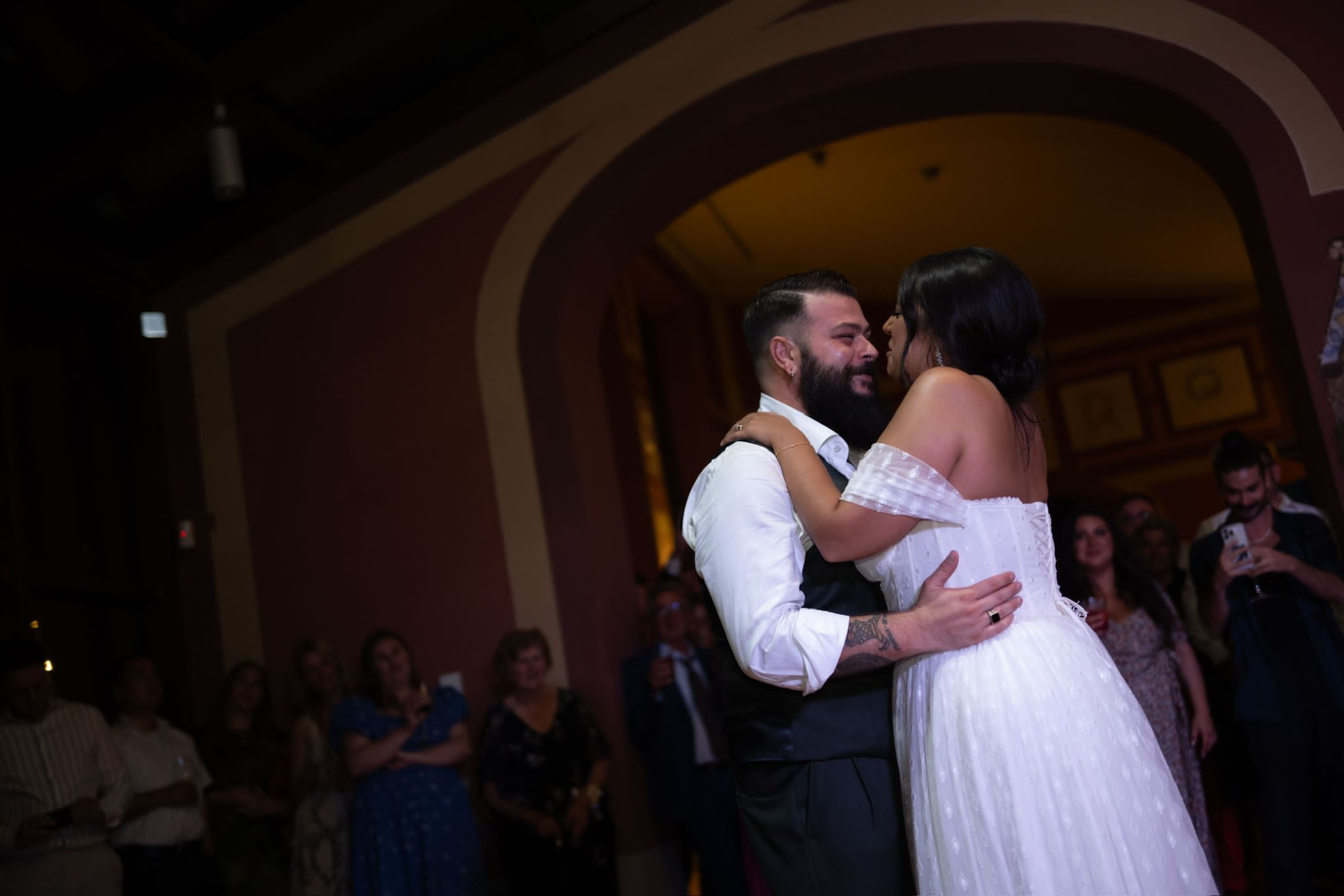
FAST, hasta septiembre de 2023, y la boda de Mauro y Julia de hipster-chic en uno de los lugares de boda más modernos de Toscania: Limona en el Stibbert Museum en las colinas Florentine. Es una ocasión feliz, una celebración tanto del amor como de la vida, pero en lo que respecta a Mauro, dos de los invitados son más importantes que todos los demás: la mujer que le dio la oportunidad en 1987 y la que 33 años más tarde le dio una segunda oportunidad.
La Dra. Angela Konze asiste con su pareja, la enfermera de urgencias Rita Marino, que fue la primera persona en ver a Mauro cuando fue conducido por las puertas del Hospital Santa Maria Nuovo poco después de las 7 de la mañana del 29 de diciembre de 2020.
“El servicio de urgencias llevó a Mauro al hospital”, dice. “Llamaban para avisarnos de que estaban llevando a un joven con hemiparesia izquierda cuya última vez que se vio normal no se conocía. activé de inmediato la circuito del ictus para un caso de ictus en vigilia”.
En el caso de la médico. Mónica Ciaccheri, cansada al final de un largo turno nocturno, el momento apenas podría haber sido peor. Tendrán que confiar en la adrenalina para pasar a los 64 minutos siguientes.
Recuerda: “Mauro no pudo hablar. Me esforcé mucho por comunicarme con él, pero no podía mover el brazo izquierdo ni hablar. De alguna manera me di cuenta de que podría haber sido un ictus de vigilia. Tuvimos que actuar rápidamente. Por encima de todo, teníamos que seguir hablando con él para demostrar que estábamos tranquilos, lo que en realidad no estábamos".
La excusa funcionó. Mauro dice: “Sabía que había una emergencia a mi alrededor, que estaban lidiando con un asunto urgente, pero también tenían la calma de alguien que sabe lo que está haciendo. No recuerdo haberme parado un segundo, era como si me hubieran puesto una alfombra flotante”.
La alfombra volante lo llevó a radiología donde la Dra. Angela Konze había entrado para ayudar a un compañero del turno de noche. Cuando la primera TAC no ofreció ninguna explicación para los síntomas de Mauro, la alfombra voladora continuó a una velocidad aún mayor en la sala del sistema de RM para realizar una exploración por RM. Aquí se confirmó que Mauro había sufrido un ictus y que, a pesar de que se desconocía el momento de aparición de los síntomas, el intervalo de tratamiento aún no se había cerrado.
Como médico de servicio de urgencias, fue la Dra. Ciaccheri quien tomó la decisión de tratar. Aunque no es una especialista en ictus, podría aprovechar lo aprendido en los talleres de Angels en los meses anteriores y los protocolos que llevaba en los bolsillos de su bata blanca.
“Estamos hablando de un hombre joven, era imprescindible”, dice. “Me dije a mí mismo: “Nunca volveré a tener miedo” porque estaba seguro de que era lo único que podía hacer”.
Con la bolsa de ictus Angels a mano, Mauro recibió tratamiento in situ antes de ser trasladado, en primer lugar, al servicio de urgencias bajo el ojo vigilante del Dr.Francesco Prosperi Iovi y, a continuación, al médico de medicina interna médico Dr. Vieri Vannucchi en la UCI.
El Dr. Vannucchi les ha encantado la recuperación de Mauro. “Incluso en un momento de extrema dificultad, cuando los pacientes con COVID llenaron la UCI y ni siquiera disponíamos de monitores, conseguimos cuidar de Mauro de la mejor manera posible gracias a la excelente colaboración entre todos los profesionales”.
Mauro fue la buena noticia que el equipo necesitó, el Dr. Vannucchi sugiere: “En ese momento, en el que debido a la Covid todo iba mal, Mauro salió bien”.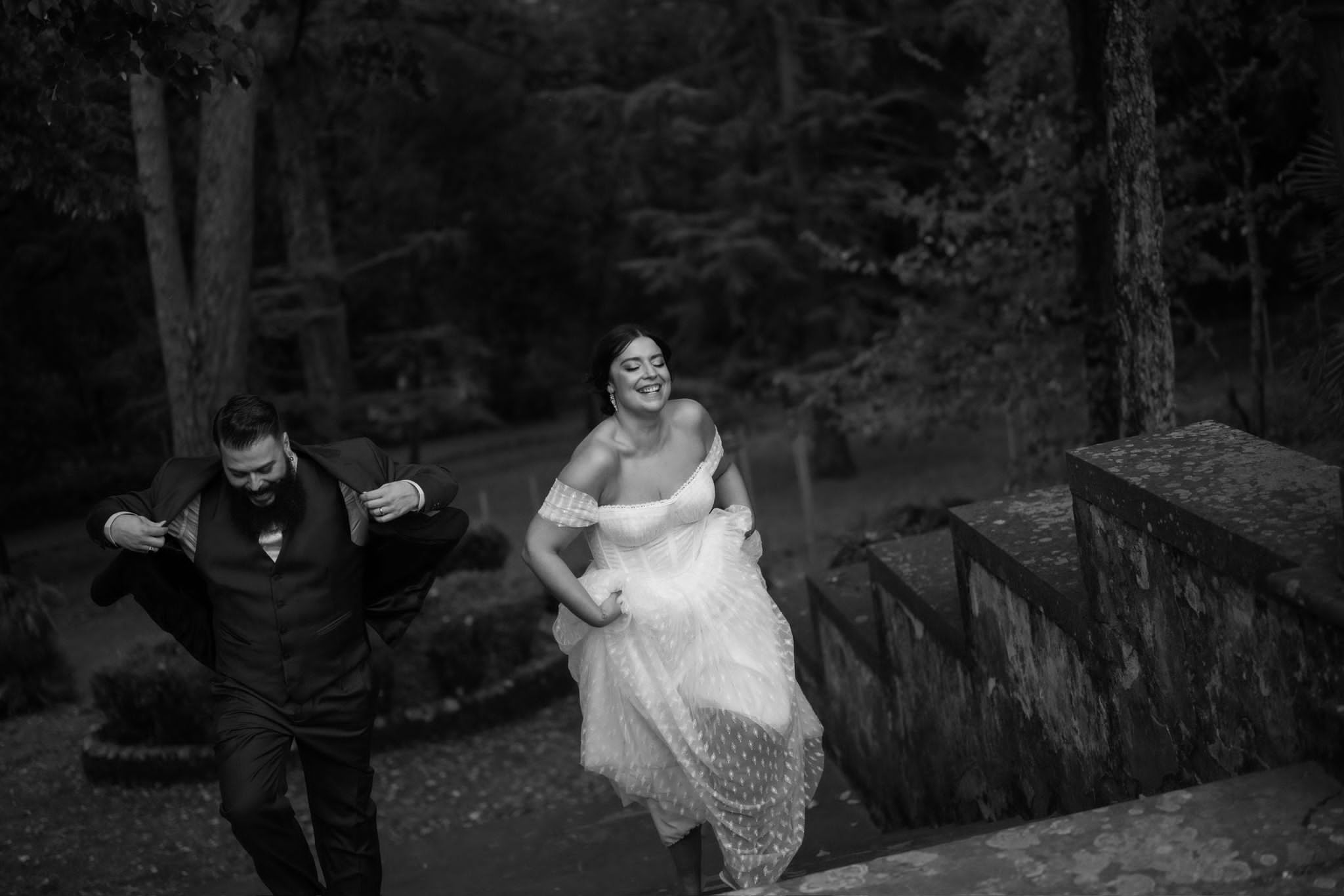
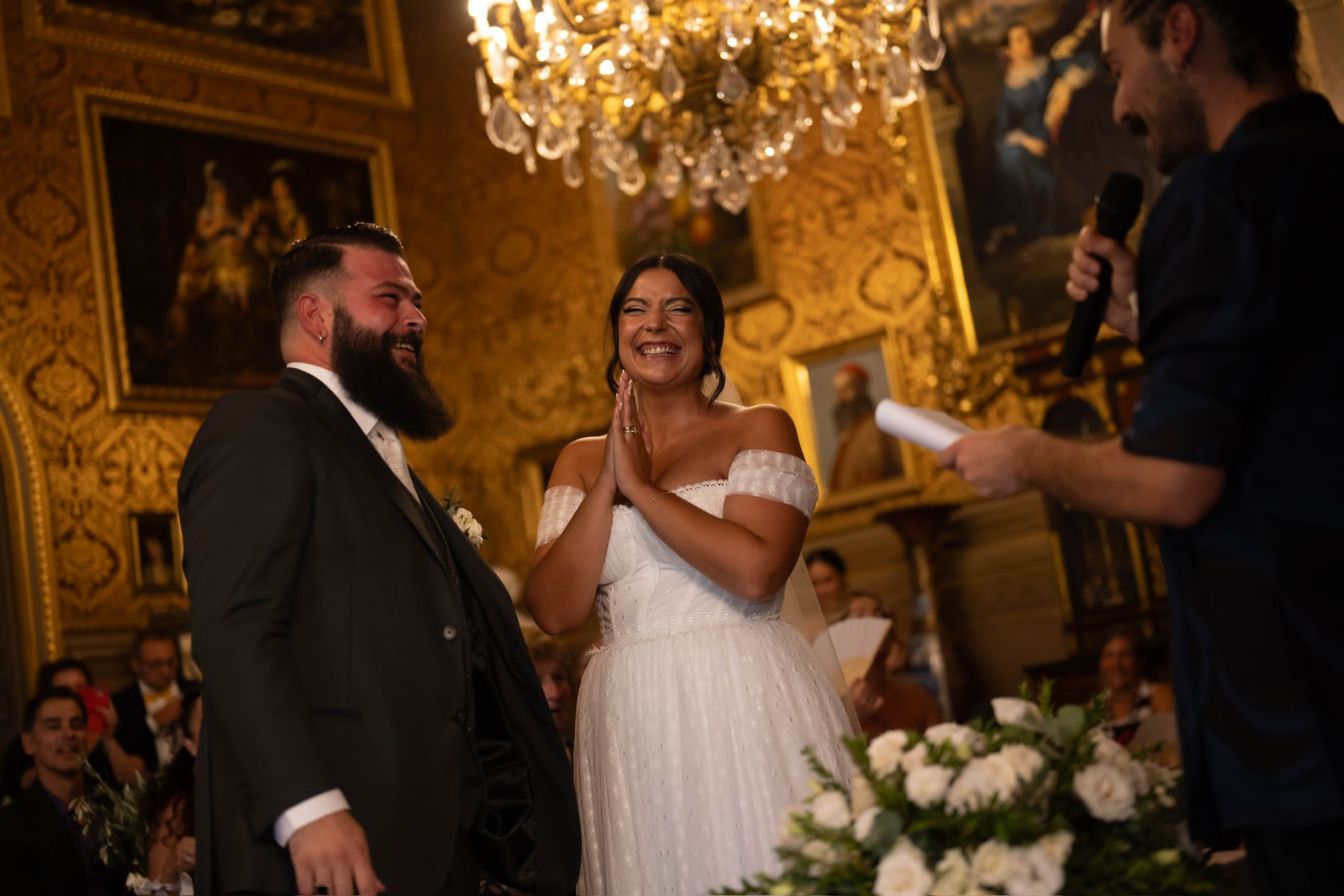
EN Canadá, Julia saludó la noticia con increencia. “No podía creer que alguien que parecía totalmente correcto me estuviera diciendo que tenía algo que ni siquiera creía que fuera posible. Me sentí muy culpable por no haber estado allí con él, por haberlo hecho él solo.
“Mi mayor miedo, por supuesto, fue que iba a ocurrir de nuevo. Tenía miedo de que nunca fuera igual, que su visión de la vida cambiara y que ya no sería una persona feliz y positiva. De hecho, creo que si algo hacía lo contrario, lo hacía más positivo, más optimista de muchas formas”.
“No me convertí en una persona mejor”, dice Mauro. “No fui sabio, no vi a Dios, soy la misma persona que antes. Lo único que ha cambiado en mi vida es que dejé de hacer cosas que no quiero hacer. Simplemente doy diferentes prioridades a las cosas. Ya no pierdo tiempo”.
Su segunda oportunidad es un nuevo mandato, dice. “Es otro ticket para el carrusel. Estoy aquí y pude casarme, comprar una casa, avanzar en el trabajo, tener hijos en el futuro, todo lo que podría no haber sucedido si no fuera para este equipo”.
Con 16 premios Angels Diamond Awards de la ESO, el Hospital Santa Maria Nuovo es uno de los principales centros del ictus de Europa. En el año siguiente a la inscripción en Angels en 2018, duplicó su tasa de recanalización, redujo a la mitad su tiempo desde la llegada hasta recibir tratamiento y recogió el primer premio a diamante de Italia. Desde entonces, el "punto brillante" del Hospital Santa Maria Nuova ha seguido difundiendo su luz.
La Dra. Angela Konze es una formidable educadora en ictus cuyo trabajo innovador y dedicado ha afectado a la atención del ictus en toda la región central de Toscana. Desde que se recuperó de su ictus, Mauro participa de forma regular en talleres y reuniones de formación. “Ha enriquecido nuestras vidas”, dice Angela. “Cuando comparte su historia, creemos que no es posible un mejor aprendizaje. Para todos nosotros”. 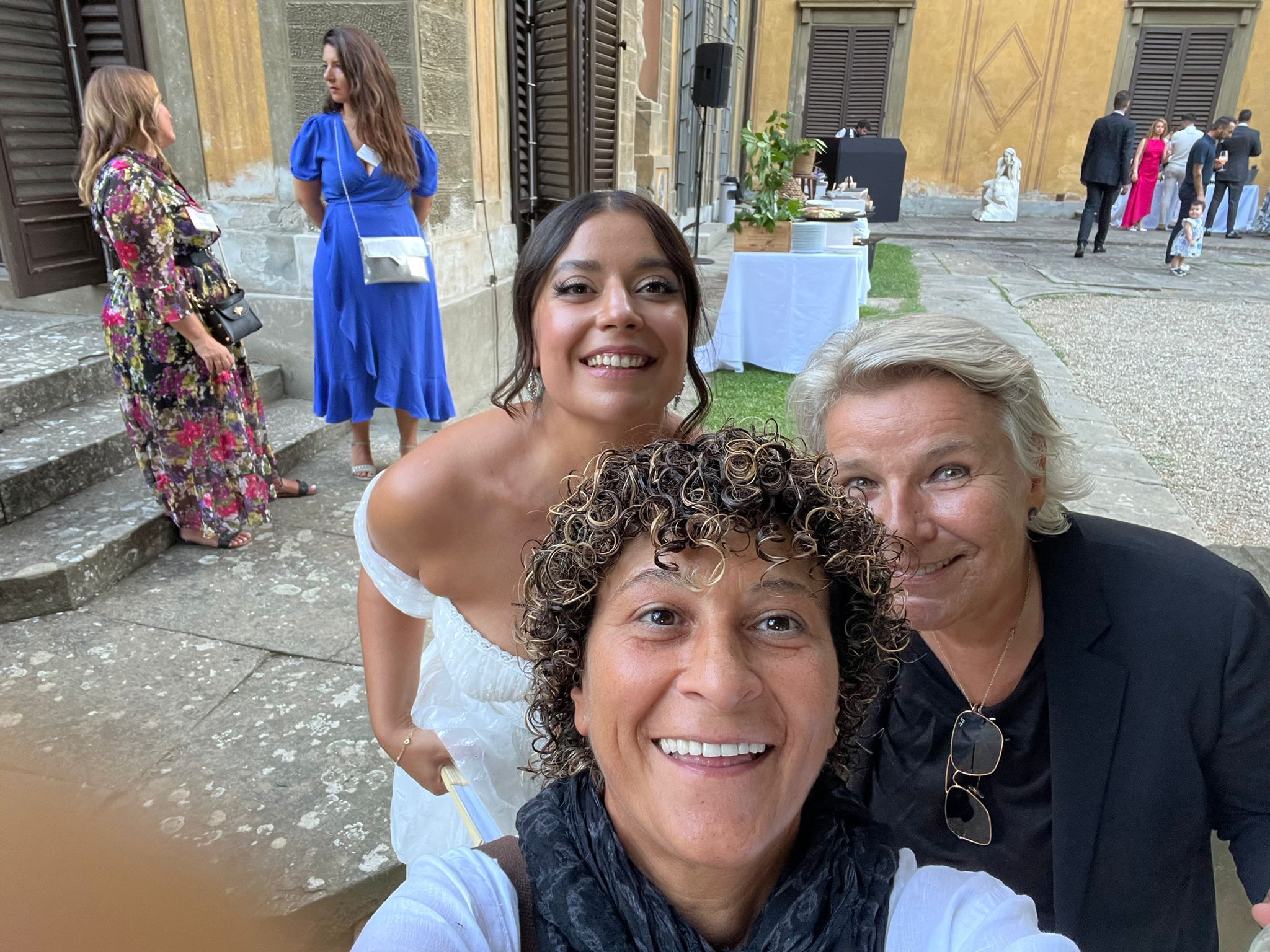
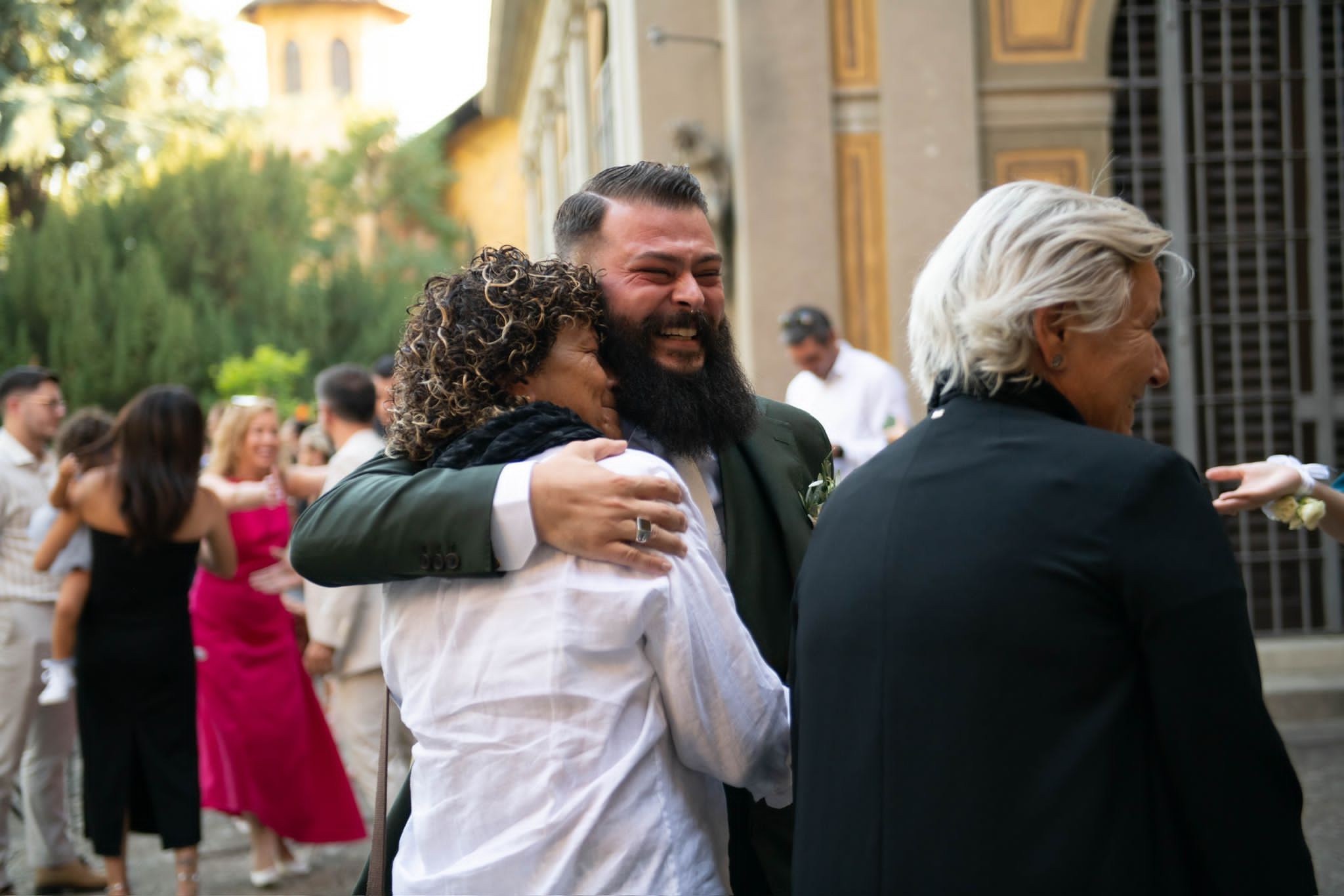
La historia del superviviente de un ictus de MAURO es también la historia de una amistad duradera que comenzó casi desde el momento en que llegó a Santa Maria Nuova. Recuerda “entrar en el hospital y encontrar no un grupo de personas sino un equipo”. Escuchar a los médicos bromear entre ellos fue reconfortante, dice. “No sé cómo explicarlo; les hizo parecer menos médicos y más humanos”.
“Por supuesto, no somos solo médicos, también somos seres humanos”, dice Angela. “Mauro es un paciente del que estamos orgullosos y que también se ha convertido en amigo. Luego llegamos a conocer a Julia y fuimos a su boda, que era emocional para nosotros. Una boda siempre es emocional, pero si recuerdas que tres años antes podría haber ido de forma completamente diferente, lo cambia todo”.
Julia dice que ver a Angela y Rita llegar a su boda fue un momento especial y bonito. “Fueron las dos primeras personas que vi, yo seguía en el coche. Los vi y pensé que, guau, este día nunca habría sucedido sin estas dos personas y ahora están aquí con nuestras familias”.
Mauro está firme en que su historia sobre el ictus no es una buena suerte, sino de un grupo de personas que tomaron medidas deliberadas para convertirse en el equipo adecuado.
Explica: “Siempre digo que fue afortunado poder llamar a la ambulancia. Pero a partir de ese momento no deberías hablar de la suerte, desde entonces se trata de encontrar a personas que sepan qué hacer.
“Conocí a personas que me volvieron la vida y me dieron una segunda oportunidad, pero no porque tuviera suerte. No me considero una persona más afortunada que los demás, solo me considero una persona que encontró a las personas adecuadas.
“Espero que quien pase por esa puerta encuentre a la misma gente, al mismo equipo y a la misma pasión que ponen en su trabajo”.

